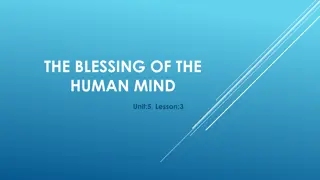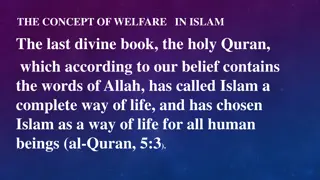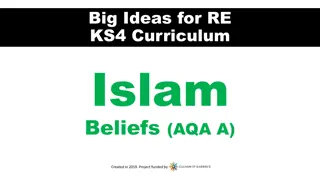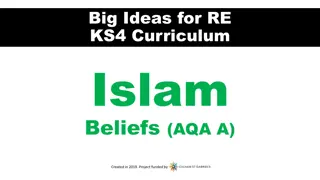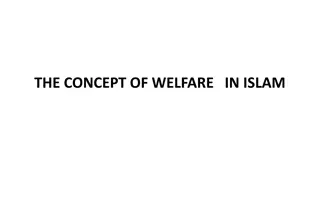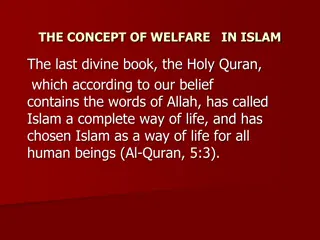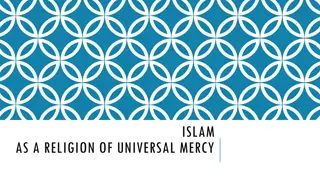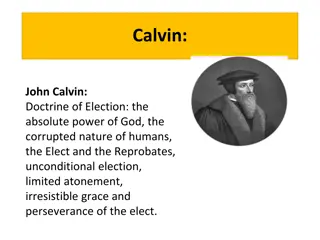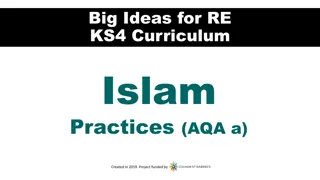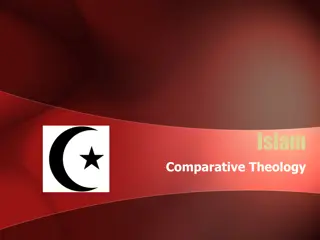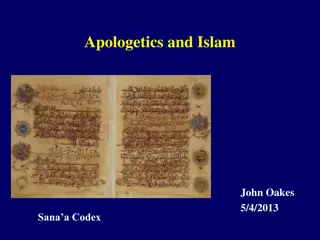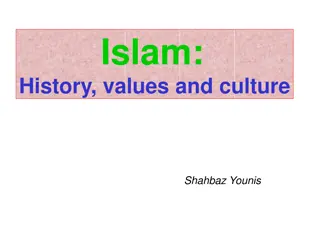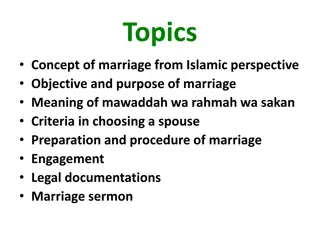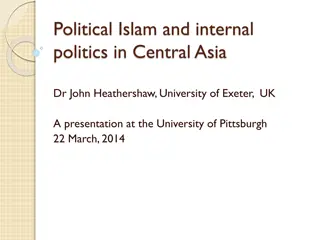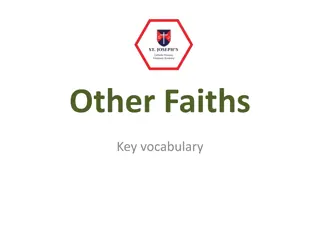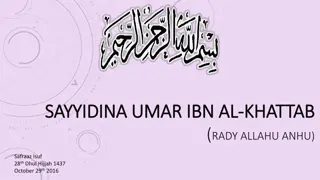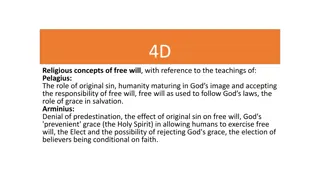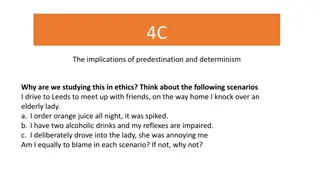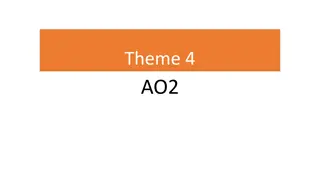Exploring the Concept of Predestination and Free Will in Islam
Dive into a thought-provoking lesson plan centered around the concepts of predestination and free will in Islam, addressing philosophical questions, different Islamic perspectives, and the relationship between human freedom and the Day of Judgment. Engage students in discussions, activities, and contemplation to deepen their understanding of these fundamental beliefs.
Download Presentation

Please find below an Image/Link to download the presentation.
The content on the website is provided AS IS for your information and personal use only. It may not be sold, licensed, or shared on other websites without obtaining consent from the author. Download presentation by click this link. If you encounter any issues during the download, it is possible that the publisher has removed the file from their server.
E N D
Presentation Transcript
Big Ideas for RE KS4 Curriculum Islam Beliefs (AQA A) Created in 2019. Project funded by
8: 8: Predestination and free will Predestination and free will From the spec human freedom and its relationship to the Day of Judgement. Predestination and BIG IDEAS LEARNING PHILOSOPHY: problem of free will and judgement DIVERSITY: different Islamic responses to this problem Learning outcomes: Offer a view as to the problem of free will Explain Islam s answers to problems of judgment, freedom and God s foreknowledge RESOURCES 8 Predestination
Lesson 8 To set up another philosophical question, introduce John Locke s locked room thought experiment (on next slide). Discuss: is the person in the room free to act? Recap Marla. Discuss all the things in Marla s life that she had no control over. What did Marla have control over? Discuss: is Marla free to act? Go to diagrams from last lesson. Recap day of judgment. What happens? What will be the result of judgment? (heaven or hell, based on actions) Read short sentence on predestination/ al-Qadr on 8 Predestination work sheet. Create the free will continuum across the room or on separate desks. Ask students to place al- Qadr on this line: how much freedom does it represent? Return to Locke s thought experiment. If God knows what we will do before we do it, as in the view of al-Qadr, are humans like the man in a locked room- not free, although we may think we are free? Discuss. Read the Bada and Mu tazilite view. Place them on the free will continuum: how much freedom do they represent? Discuss in comparison to al-Qadr; which view do students feel makes most sense? Read, place and discuss the Shi a principle of Adl. If God is just, can God ever be responsible for evil? Does this mean that evil must be caused by humans? Read, place and discuss the Sunni Asharite principle. If God is to be supreme, must God therefore have power over all beings, even if they are not aware of it? Finally, discuss the question: if God is all powerful can humans be free?
WE: locked room thought experiment https://www.youtube.com/watch?v=xZMJ-xaaNu0 Is the person free to act? Does the person have choice? What did Marla have control over? Whose choice was it? What did Marla not have control over?
Task Add the statements to the continuum Predestination (Arabic; to measure out ). All human lives are predestined before the human is born. Everything that humans do has been decreed in advance by God. A largely Sunni view.
You Task Only what God has decreed will happen to us. He is our Master; let the believers put their trust in God. Qur an 9:51 Explain two Muslim teachings of predestination. (5 marks) One Muslim teaching about predestination is . Another teaching about predestination is
You Task Check and correct Only what God has decreed will happen to us. He is our Master; let the believers put their trust in God. Qur an 9:51 Explain two Muslim teachings of predestination. (5 marks) One Muslim teaching about predestination is that God has already determined everything that will happen in the universe. Only what God has decreed will happen to us God has already written down everything that will happen in a book of decrees, and people have limited freedom to change their future. Another teaching about predestination is that God knows everything that will happen, but hasn t already decided what will happen. God is outside time, he already knows everything, but people can still make their own choices. This is supported by Surah 13:11 in the Qur an: God does not change the condition of a people unless they change what is in themselves..



